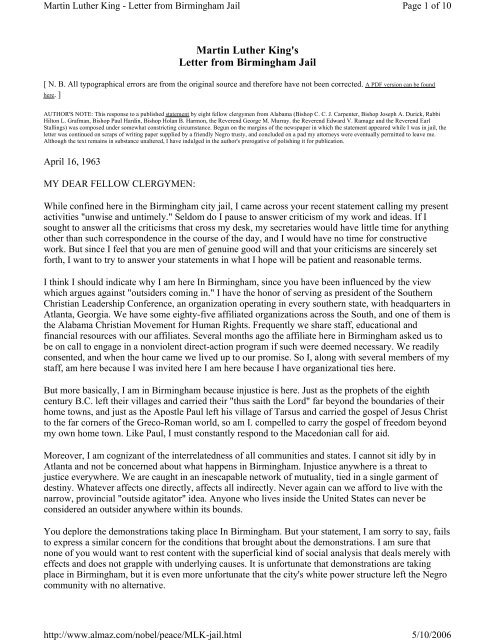

He rebukes the premise of their "led by outsiders" argument and illuminates a compelling vision that is at once religious and political: He realizes that the discomfort he has caused his detractors is a necessary part of the work. The letter, and the circumstances under which it was written, speaks to a more radical King than the popular, sanitized version of his legacy we see in the media today. The white clergy leaders urged the Black community to "withdraw support from the demonstrations and to work peacefully for a better Birmingham." They condemned the demonstrations as being "led in part by outsiders" and praised "the community as a whole - local news media and law enforcement officials in particular - for the calm manner in which these demonstrations have been handled." King responds to eight white Alabama clergymen who penned a public statement appealing for "law and order" in the face of demonstrations by the Black community led by King and other local leaders.

It stands out to me as both a movement leader’s brilliant response to criticism from those who should be supporting his work and a lesson on what lies at the heart of a true democracy: justice for all. icon-linked Created with Sketch.Įach Martin Luther King Jr.


 0 kommentar(er)
0 kommentar(er)
